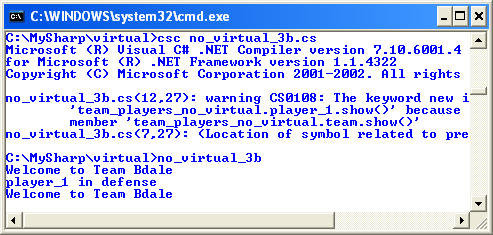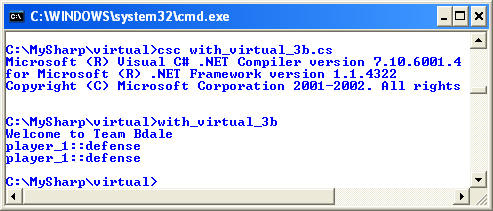My note :
A virtual method is used to over-ride the data in Base class with the data by a method in the derived class. With out virtual key word, the data in the base class remain unaffected,
using System;
namespace team_players_no_virtual
{
class team
{
public void show() { Console.WriteLine("Welcome to Team Bdale"); }
}
class player_1 : team
{
public void show() { Console.WriteLine("player_1 in defense"); }
}
class Test
{
static void Main(string[] args)
{
team a = new team();;
player_1 b = new player_1();
a.show();
b.show();
a = new player_1();
a.show();
}
}
}
using System;
namespace team_players_with_virtual
{
class team
{
public virtual void show() { Console.WriteLine("Welcome to Team Bdale"); }
}
class player_1 : team
{
public override void show() { Console.WriteLine("player_1::defense"); }
}
class Test
{
static void Main(string[] args)
{
team a = new team();
player_1 b = new player_1();;
a.show();
b.show();
a = new player_1();
a.show();
}
}
}
C:\MySharp\virtual>csc no_virtual_3.cs
Microsoft (R) Visual C# .NET Compiler version 7.10.6001.4
for Microsoft (R) .NET Framework version 1.1.4322
Copyright (C) Microsoft Corporation 2001-2002. All rights reserved.
no_virtual_3.cs(12,27): warning CS0108: The keyword new is required on
'team_players_no_virtual.player_1.show()' because it hides inherited
member 'team_players_no_virtual.team.show()'
no_virtual_3.cs(7,27): (Location of symbol related to previous warning)
C:\MySharp\virtual>no_virtual_3
Welcome to Team Bdale
player_1 in defense
Welcome to Team Bdale
a =
new player_1();
a.show();
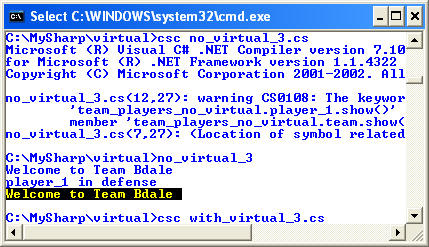
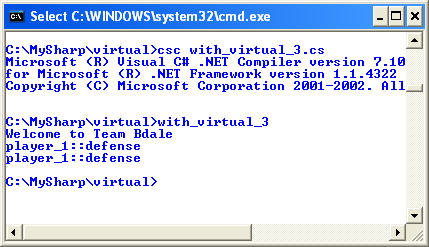
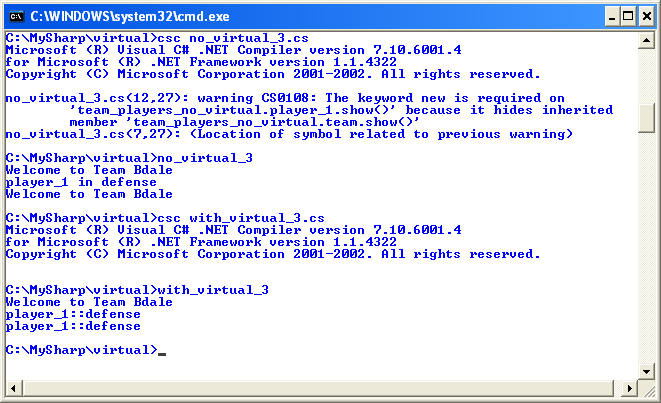
//no_virtual_3b.cs
using System;
namespace team_players_no_virtual
{
class team
{
public void show() { Console.WriteLine("Welcome to Team Bdale"); }
}
class player_1 : team
{
public void show() { Console.WriteLine("player_1 in defense"); }
}
class Test
{
static void Main(string[] args)
{
team a = new team();;
player_1 b = new player_1();
a.show();
b.show();
a = b;
a.show();
}
}
}
using System;
namespace team_players_with_virtual
{
class team
{
public virtual void show() { Console.WriteLine("Welcome to Team Bdale"); }
}
class player_1 : team
{
public override void show() { Console.WriteLine("player_1::defense"); }
}
class Test
{
static void Main(string[] args)
{
team a = new team();
player_1 b = new player_1();;
a.show();
b.show();
a = b;
a.show();
}
}
}
